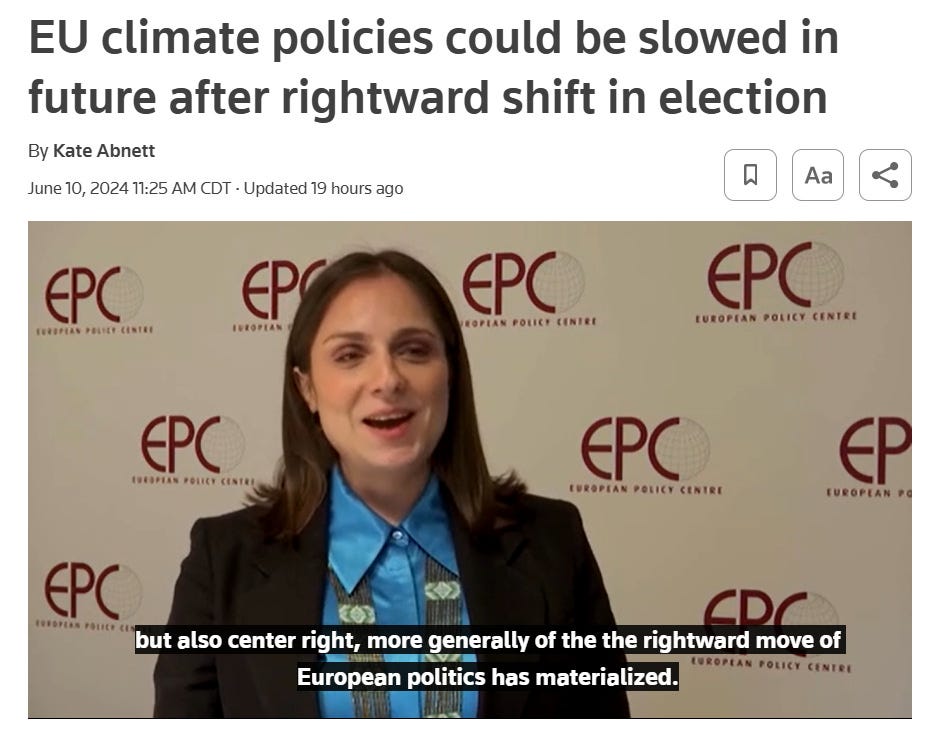Subscribed The propaganda media’s reporting on the conservative wave that roiled across the EU in the weekend’s elections focused on the angle that mass immigration was the only issue at play.
There are several other reasons for upset of the EU’s orthodoxy: Energy, economics, farming, ESG, security, government overreach.
The propaganda media’s reporting on the conservative wave that roiled across the EU in the weekend’s elections focused on the angle that mass immigration was the only issue at play. This was obviously not correct, but it was the preferred globalist narrative of the wave event.
But both farming policy and climate policy - which are interrelated to one another - were also major issues that led to the uprising against the EU’s increasingly authoritarian governance on the European continent. This is an inconvenient truth the pushers of climate alarm propaganda would prefer to ignore, but the folks over at Reuters have decided to report on it nonetheless.
Naturally, Reuters puts the globalist spin on all of it, categorizing the election outcome as a threat rather than what it actually was, which is an outpouring of voter disgust with the ruling globalist elites.
Here’s an excerpt from the story headlined “EU climate policies could be slowed in future after rightward shift in election”:
Harder to pass new green laws, but most existing ones to stay
New EU parliament may try to weaken certain green measures
EU's core climate change targets won't be undone
Political focus seen shifting to security, industry
BRUSSELS, June 10 (Reuters) - A more rightward-leaning European Parliament will make it harder to pass ambitious EU climate policies, but the majority of Europe's current world-leading green policies are likely to stay put, lawmakers, officials and analysts said.
Provisional results in the European Parliament election on Sunday night showed centrist parties holding a majority, but gains for right-wing and far-right parties sceptical of the EU's "Green Deal" package of environmental policies, and heavy losses for Green parties.
"I don't think that we'll be rolling back on (climate) policies. But I do think that it will be more complicated to get new policies off the ground," Bas Eickhout, head of the European Parliament's Greens lawmaker group, told Reuters.
EU climate measures over the next five years will depend on the incoming European Commission, which is responsible for proposing EU laws. But the newly-elected European Parliament will get a say on every new green policy.
[End]
Basically, this new narrative holds that the status quo suite of brutal EU farming and climate policies against which voters were clearly rebelling will remain safely intact despite voter frustration, and that further authoritarian “progress” will only be slowed but not stopped.
The inevitable outcome of that, of course, will only be increased frustration among the rubes out there in Euro-flyover country.
Call me silly, but it seems at least notable that the EU is headquartered in Brussels, Belgium, where the conservative wave was perhaps stronger than in any other EU nation. Globalist Belgian PM Alexander de Croo was so shocked by the election results that he chose to resign his office in their wake.
In light of that reality, one might think that the new EU parliamentary members might want to pay close attention to what is happening all around them when they convene in a few weeks.
But if you think that, you obviously don’t work at Reuters. Go figure.
That is all.





